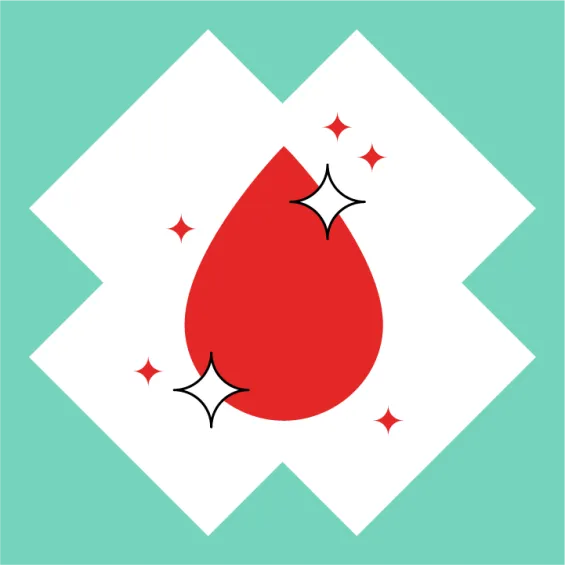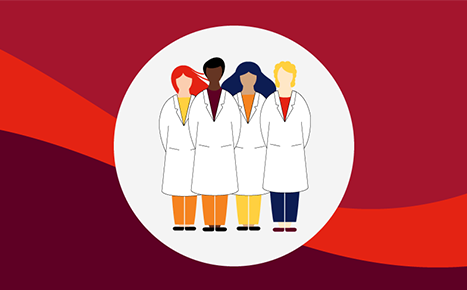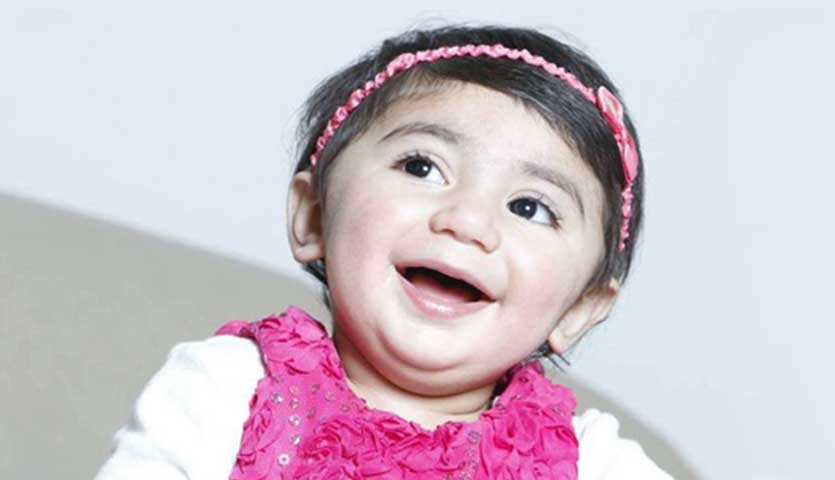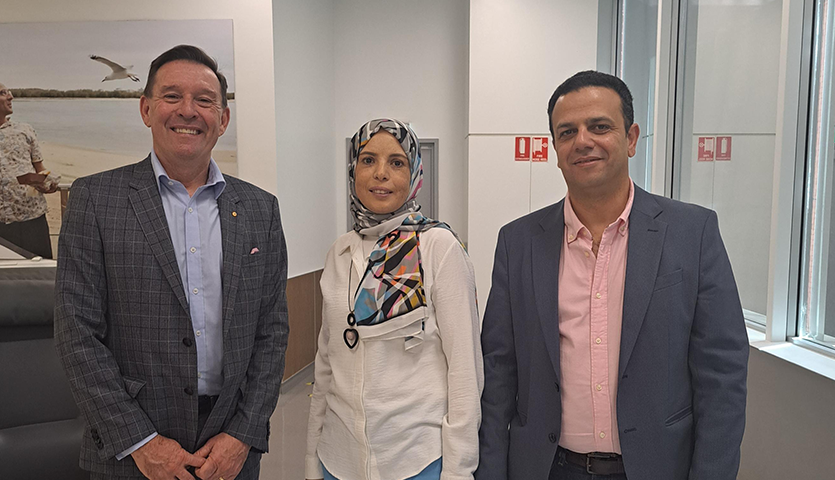Rare donors
Why do blood types matter?
When someone is given a blood transfusion, it’s best to give them blood that’s the same type as their own. This might be harder for those with rare blood types, which is where you come in. If your blood is found to have a rare blood type, you’ll join our panel of rare donors that we may call on to donate when there are patients with rare blood types in need.
What makes my blood rare?
Imagine your blood cells as donuts with hundreds of different coloured sprinkles. If your donut is missing the blue sprinkles that nearly everyone else has, your donut is considered rare.
Here’s how it works with blood: There are tiny proteins and sugars on your red cells that determine your blood type – they’re called antigens.
A rare blood group donor either doesn’t have an antigen that most people have, or is negative for a combination of antigens not usually seen together. Rare blood groups are found in less than 1 in 1,000 people.
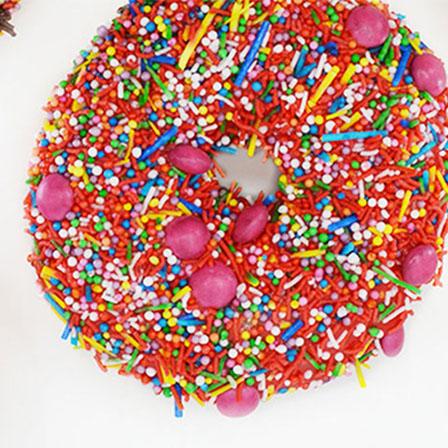
A rare blood type isn’t harmful to you or your health.
How did I get a rare blood type?
Blood groups are inherited so if you have a rare blood type, there’s a good chance other people in your family also have the same rare blood type. In fact, there is usually a 1 in 4 chance that your brothers or sisters have the same type.
Some rare blood types are usually only found in certain ethnic populations, as shown in the table.
| Rare blood type | Seen mostly in |
| Hy-, Jo(a-) or Js(b-) | African or African American ancestry |
| Jr(a-) | Japanese ancestry |
| Jk(a-b-) | Polynesian ancestry |
| In(b-) | Indian ancestry |
We always need rare blood donors. Here’s why.

Patients with rare blood types rely on rare blood donors to find a matching blood group for transfusions.
Sometimes, this is difficult as the rare type needed is not always available, and routine donor testing may not detect all the rare types we need.
Australia’s rich mix of cultures and backgrounds also means there’s a higher chance that some patients might have rare blood types, and this is where you could help save lives.
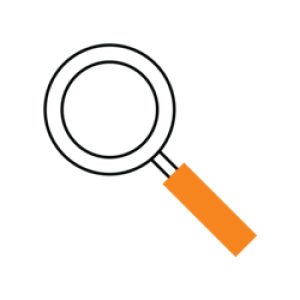
Rare donors are detected by testing red cells for blood group antigens with the use of antisera, called phenotyping, or by testing their DNA, known as genotyping.
In blood donors, detection of a rare group is often by luck as currently only a small percentage of donors are phenotyped or genotyped.
If you’ve been identified as a rare blood donor, we encourage your family members to donate too, because it may help us find more rare donors.
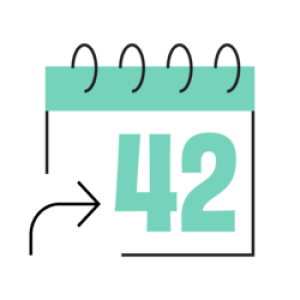
Fresh blood expires after 42 days; however, rare blood donations may be frozen for up to 30 years to help ensure we can support patients when they require blood.
A panel of rare blood group donors (which you could be a part of) is what we need to help support our fresh blood supply and frozen inventory.
Lifeblood also collaborates with the International Rare Donor Panel (IRDP) registry to support patients worldwide or to import blood when we’re unable to source from our known rare donors.
Be the rare type that saves lives.
FAQs
- What does a rare blood group mean for me?
A rare blood group does not affect your general health. However, if you’ve ever been pregnant or received a blood transfusion in the past, there’s a small chance you’ve developed red cell antibodies to the blood group antigen you’re rare for. This would be detected through pre-transfusion testing performed by public or private laboratories, or through your donation if you’re a donor. By donating blood, you could help others as well as yourself (see ‘What happens to my rare, donated blood’ below).
- What are blood groups?
Blood groups are made up of one or many red cell antigens. Red cells contain 48 known blood group systems (June 2025), the ABO system is just one of those. The presence or absence of an antigen in a blood group system is what makes the blood group rare.
- What is a red cell ‘antigen’?
They are protein or sugar molecules on or within the red cell membrane. There are at least 371 known red cell antigens (June 2025).
- How are antigens detected?
Detection of a rare antigen in a blood group system is either through phenotyping, where the red cells are tested with an antibody to the antigen in question, or through genotyping where the DNA is reviewed for uncommon sequences. The genotyping gives a prediction of the phenotype.
- Will my family have the same rare blood group?
Siblings have a 25% chance of having the same rare blood type, as blood groups are genetically inherited. Encourage family members to donate and get tested by calling 1800 503 188 to advise that they are related to you and what the rare blood group is. When they register to become a donor, they’ll also be helping us grow our rare donor panel and ensuring we can support a diverse Australian population.
- I have a rare blood group, what if I need a transfusion?
Alert your treating doctor of your rare group. Compatibility testing at your hospital’s transfusion laboratory will be performed. If needed, Lifeblood will work with your treating doctor and local transfusion laboratory to work out the best plan for you.
- What happens to my rare, donated blood?
It may be transfused to someone in need at the time of donation, or frozen for long-term storage of up to 30 years for you or someone else. Fresh blood only has a shelf life of 42 days.
- What if I want to donate but I’m ineligible?
If you have previously donated, submit a query here or call 13 14 95. If you haven’t previously donated but have been advised you have a rare blood group, speak to your GP and ask them to contact Lifeblood. In certain circumstances, you may be able to give a special donation called ‘autologous donation’ that can be frozen for your use only.
- Does anyone else have my rare blood group?
Most likely. However, the number of people will vary depending on which blood group system the rarity is in. This can be an important reason for you to donate, so that we can freeze your blood for your potential future use if no one else has your blood group.
- What is the International Rare Donor Panel and will I be added to it?
Lifeblood contributes to the International Rare Donor Panel (IRDP), which is managed by the International Blood Group Reference Laboratory (IBGRL). It contains a list of donors with very rare blood groups from blood services all across the world. There is only a small chance you’ll be added to this international panel of rare donors, as less than 0.1% of Lifeblood donors are added.
- I’d prefer not to be contacted unless it’s an emergency. Can I change this?
Absolutely, call our friendly National Contact Centre team on 13 14 95 and let them know your preference for being contacted.
